Unique Experience Programs Offered by the Cultural Centers in Jeonju Hanok Village
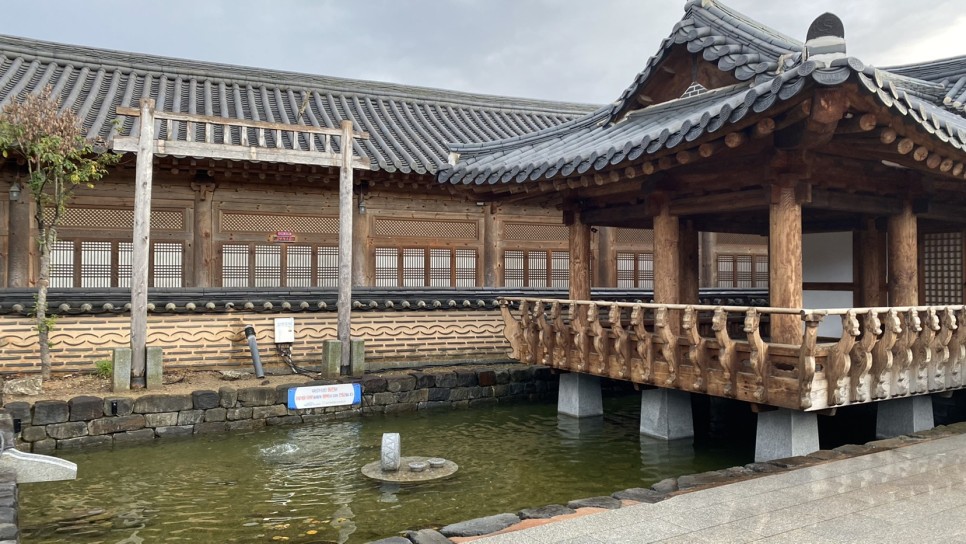
At the center of the traditional Korean culture is Jeonju, and at the center of Jeonju is Jeonju Hanok Village! Taking photos against the hanok buildings is nice but there are much more that Jeonju Hanok Village can offer. Today, I’ll introduce three ‘culture centers’ in Jeonju Hanok Village that run interesting experience programs for visitors.
Wanpanbon Culture Center
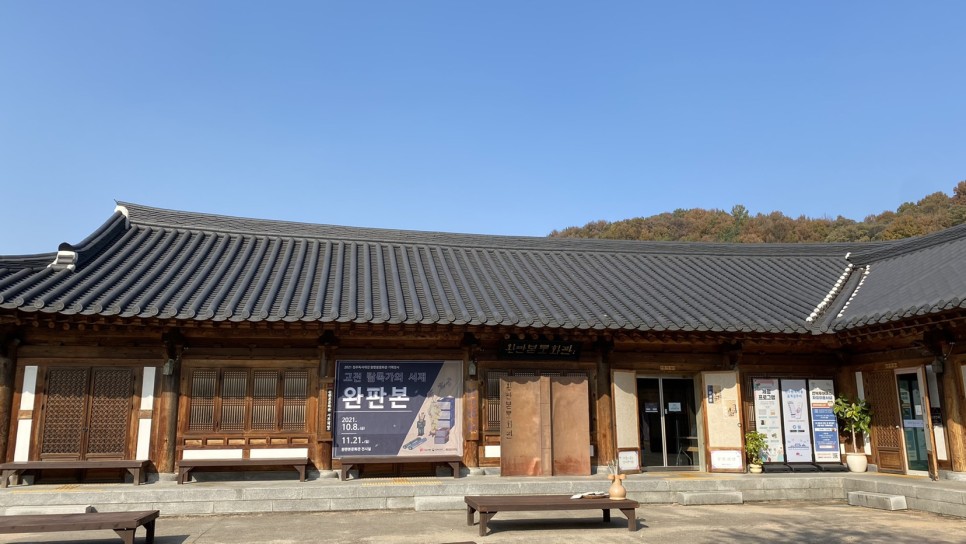
Wanpanbon Culture Center is located close to the eastern end of Jeonju Hanok Village. So, what is “wanpanbon”? Jeonju was called “Wansan” in the past. Thus, “Wanpanbon” means the old books that were published in Jeonju and their woodcut blocks. For centuries, Jeonju had been the center of both public and private sector publishing. Thanks to Wanpanbon, the circulation of classical novels written in hangul (the Korean alphabet created in the 15th century by King Sejong) had increased throughout the country. Therefore, Wanpanbon was significant for its contribution to the dissemination of hangul to the Korean population across classes.
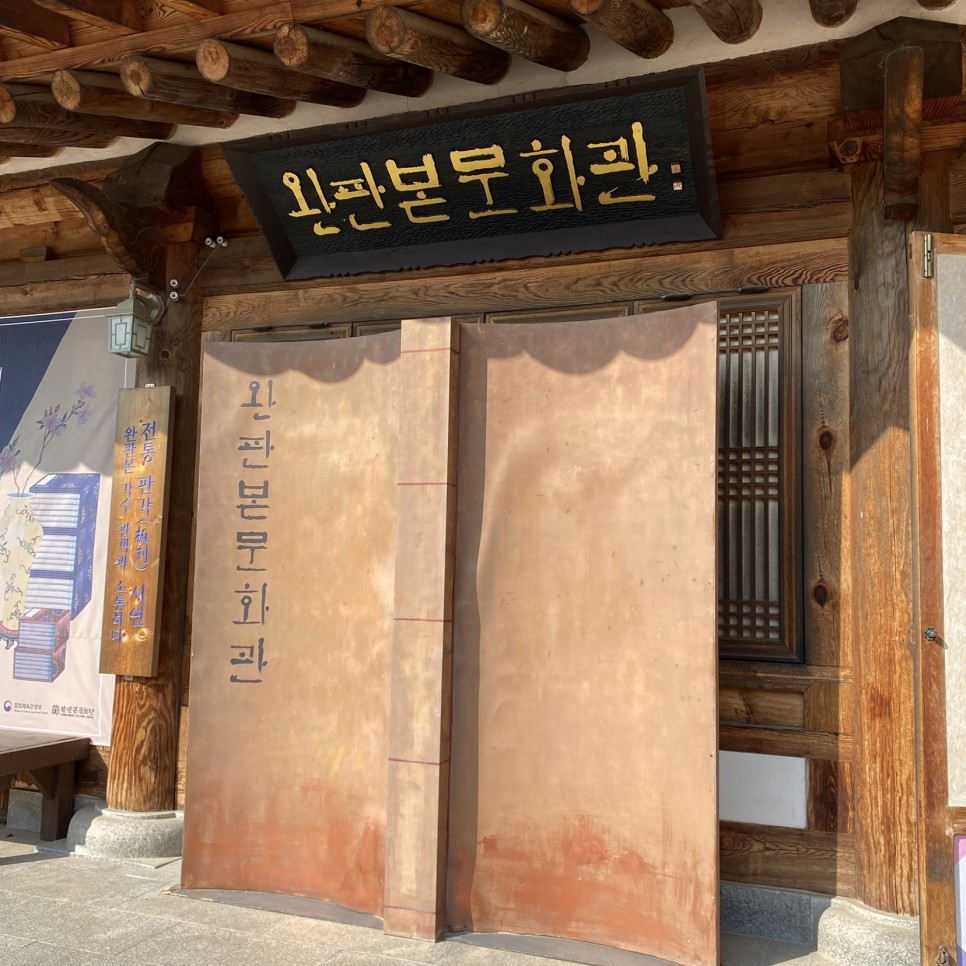
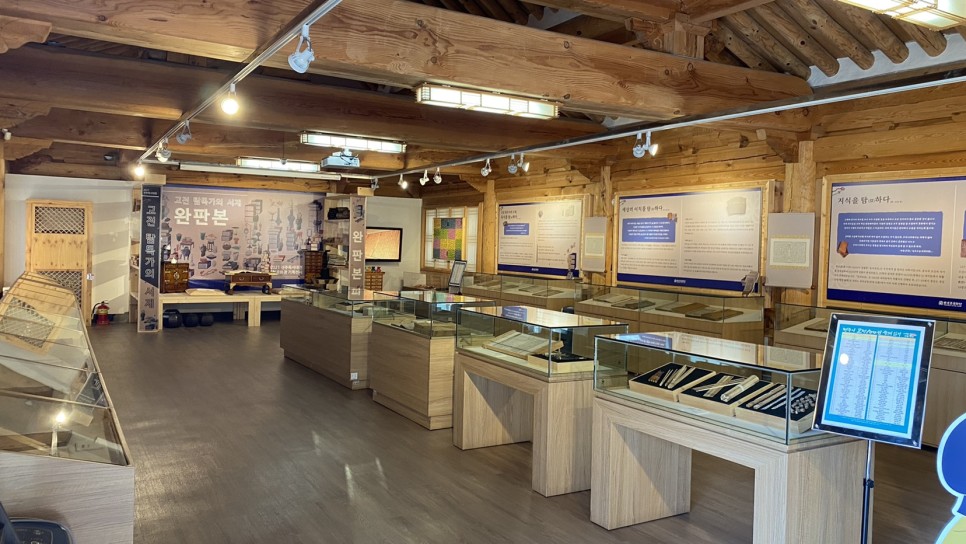
Wanpanbon Culture Center is free of charge. The opening hours are 10:00~17:00 (from December to February) and 10:00~18:00 (from March to November). The center is closed on Mondays, Chuseok, and Seolnal.
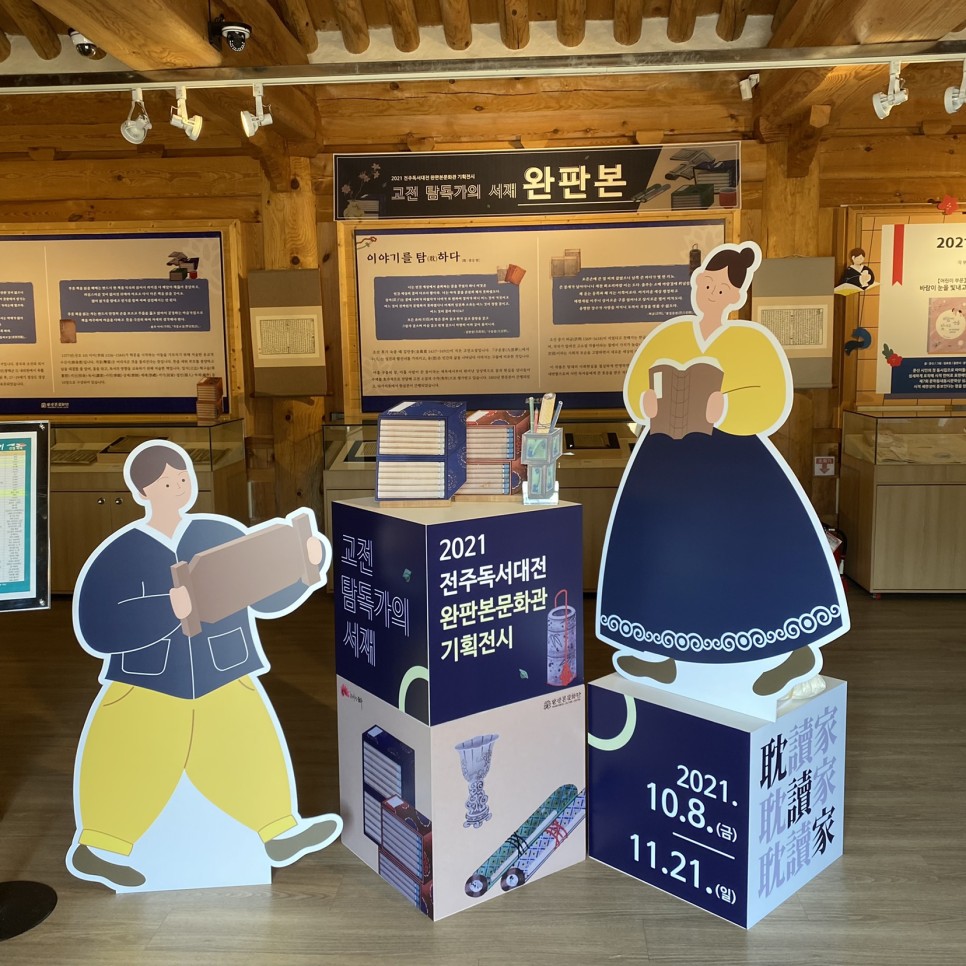
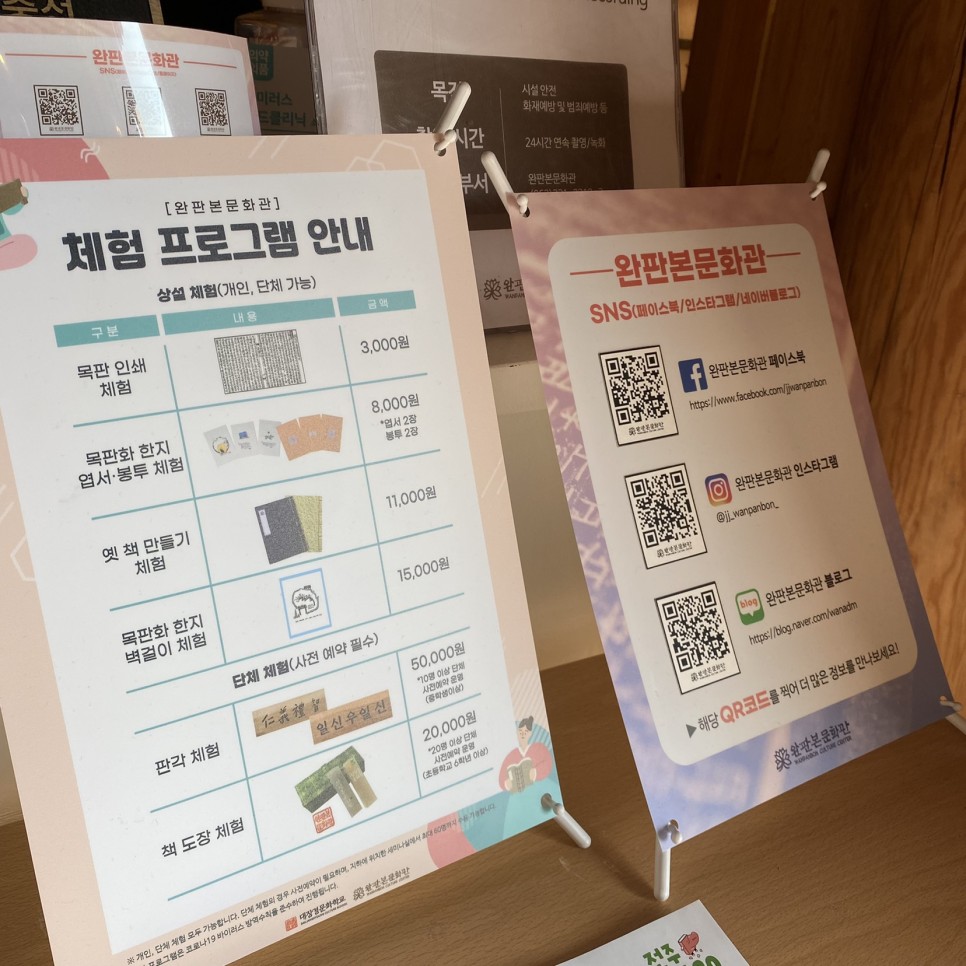
Wanpanbon Culture Center runs experience programs such as woodblock printing, making a woodblock hanji (Korean traditional paper for which Jeonju is famous) picture/postcard/envelope, and making old books.
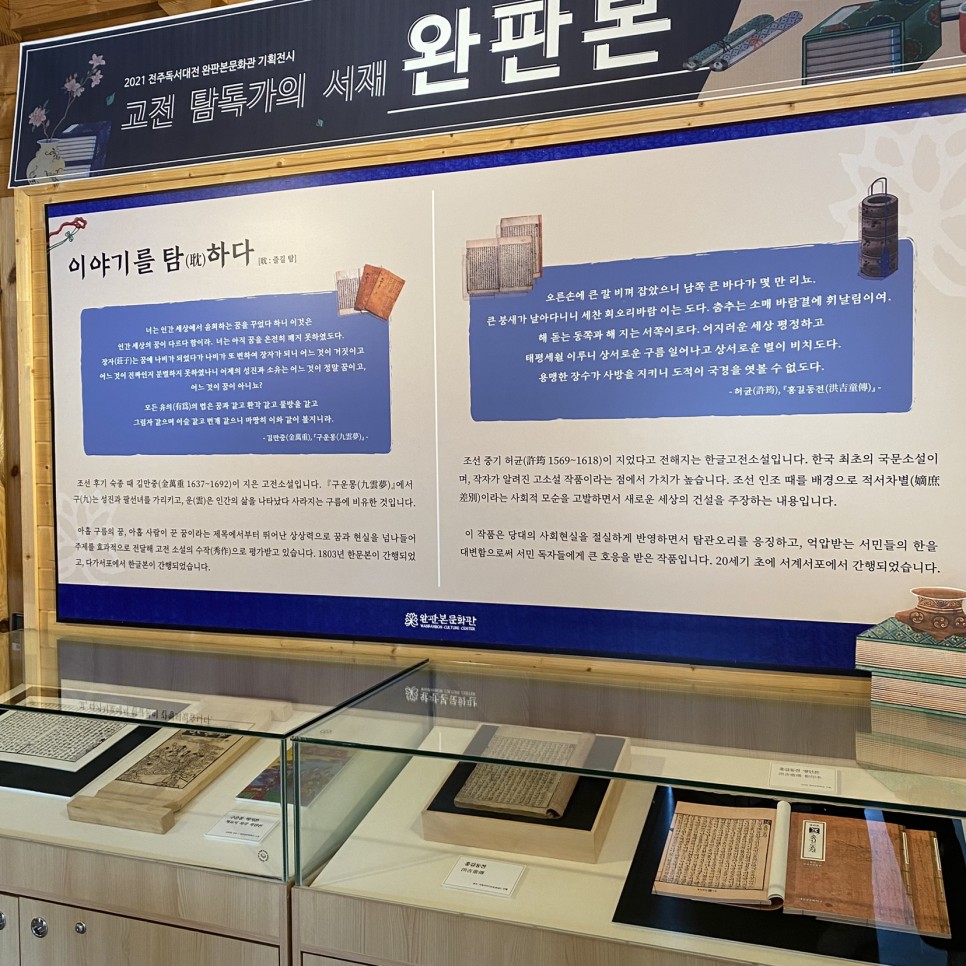
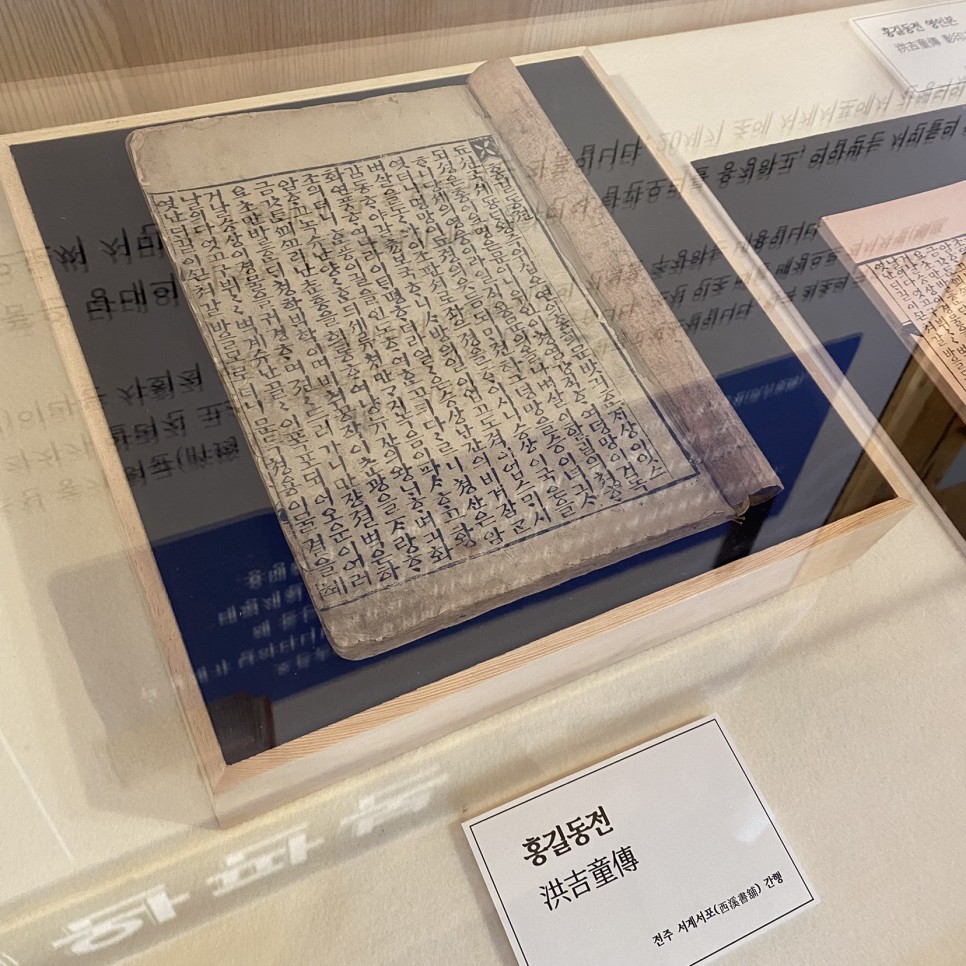
The exhibitions here were also quite impressive. For example, there was the copy from the early 20th century of ‘Hong Gildong Jeon’, the first novel written in hangul.
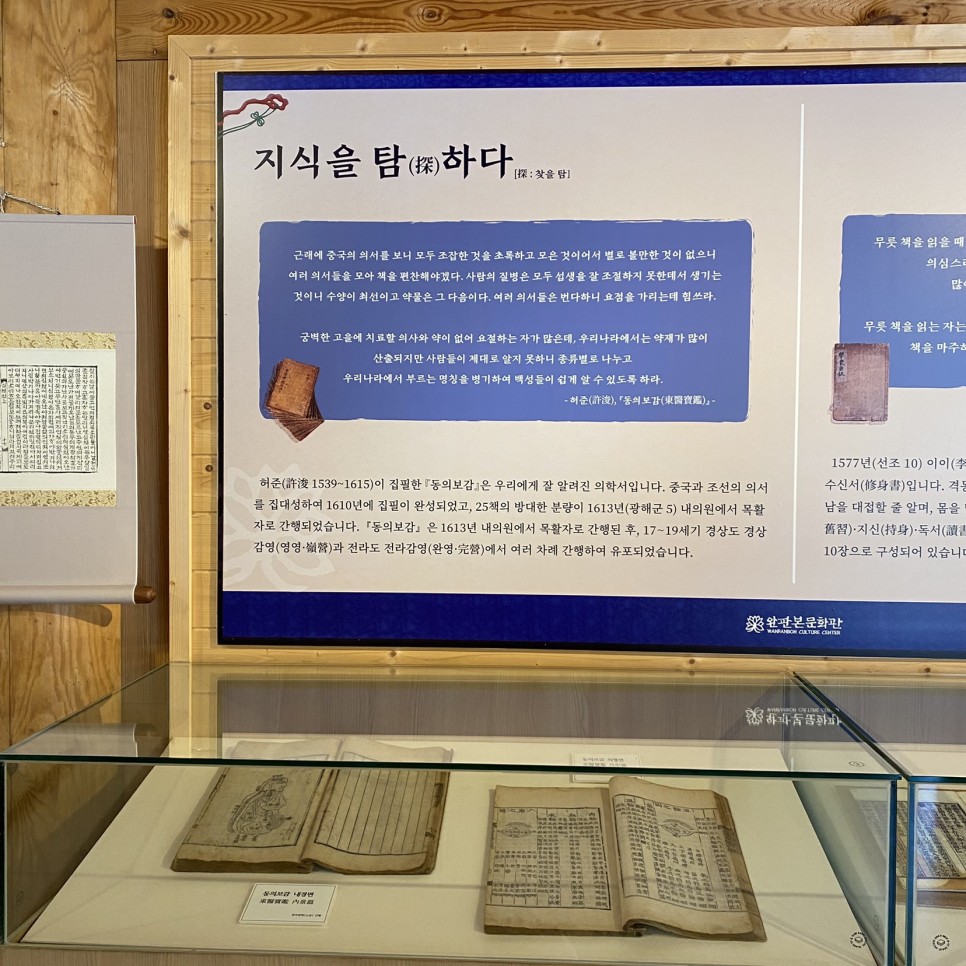
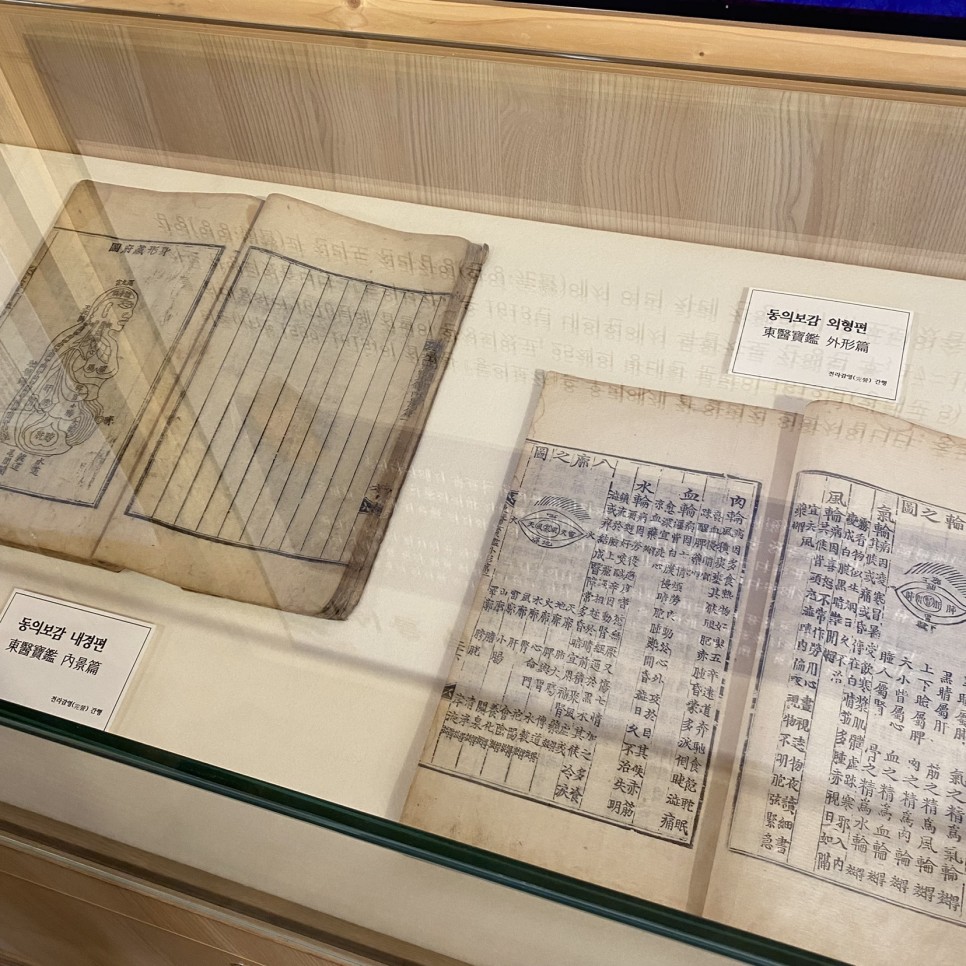
I also came across ‘Dong-eui-bogam’, written in 1610 and one of the most important books of traditional oriental medicine.
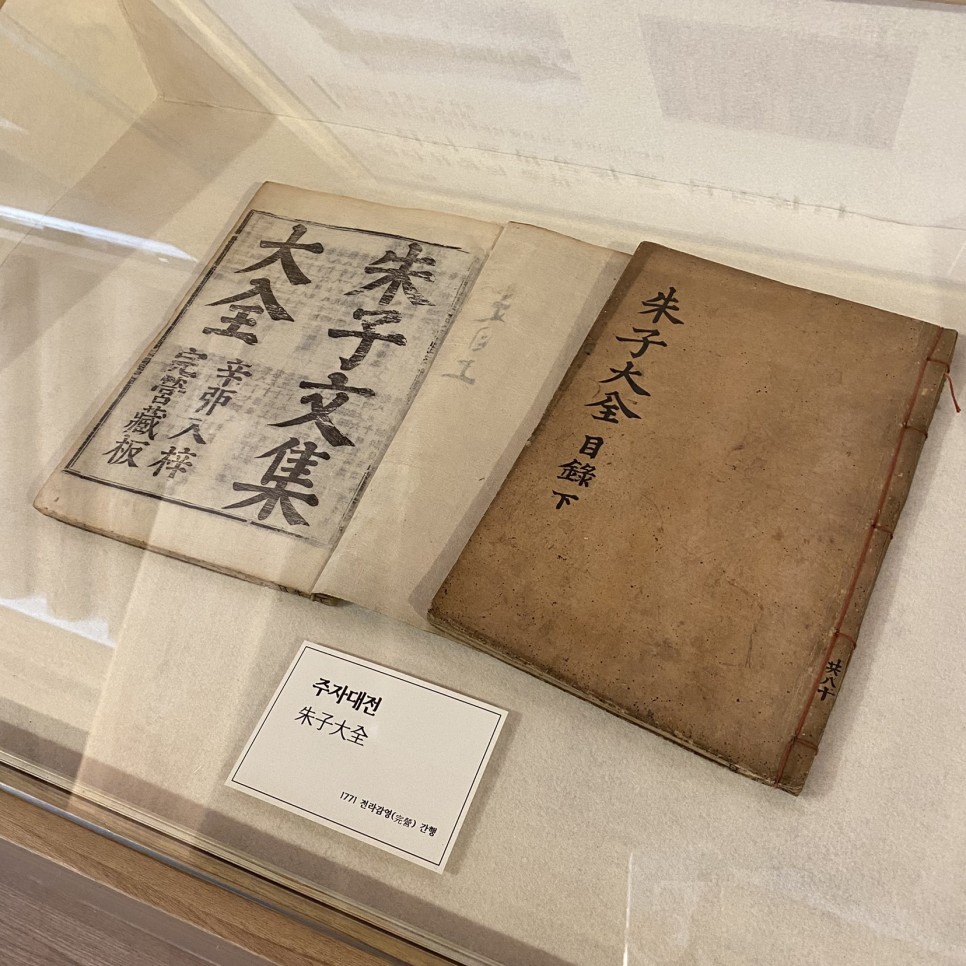
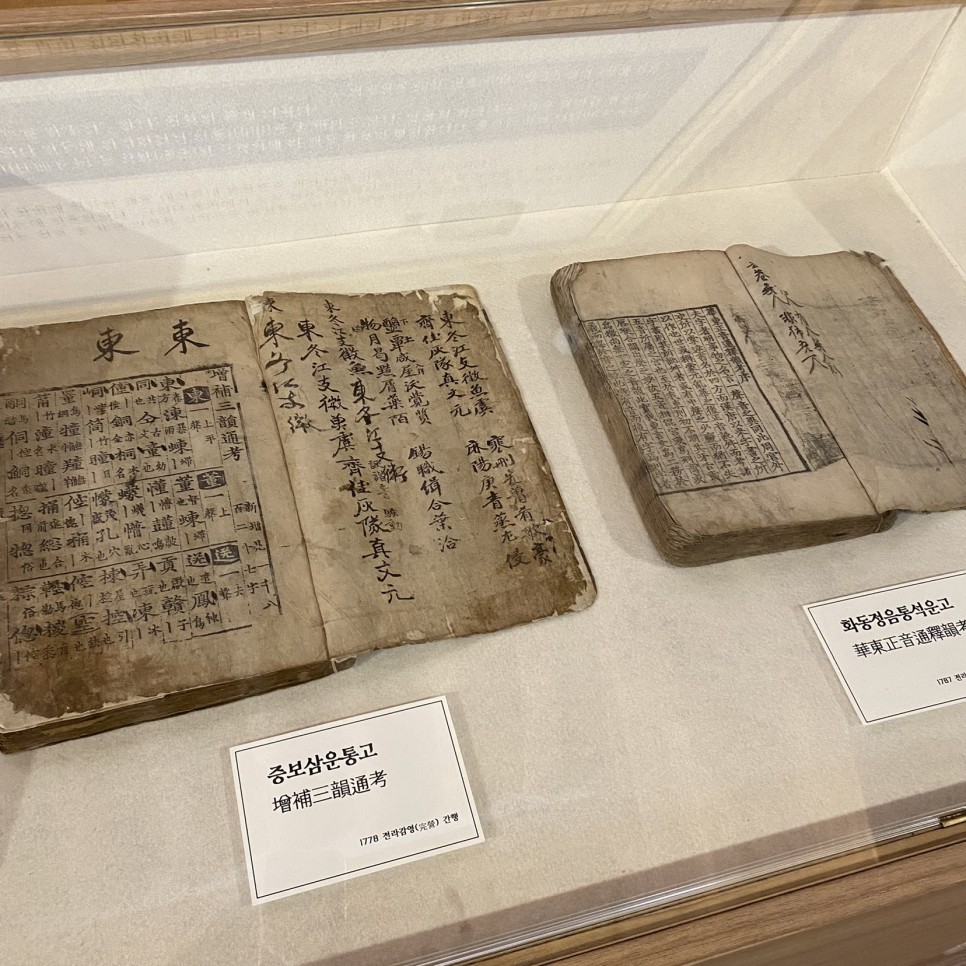
These books are three centuries old.
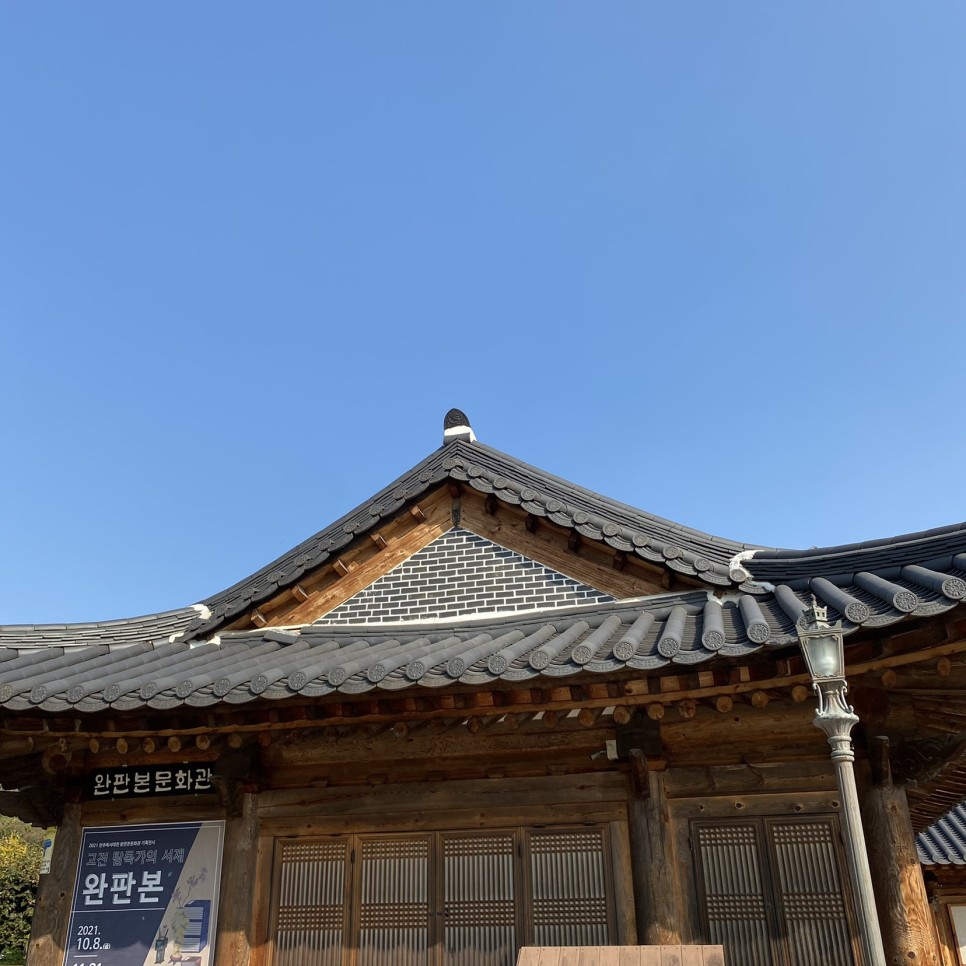
The exhibitions and the experience programs of Wanpanbon Culture Center are unique, these cannot be found anywhere else.
Wanpanbon Culture Center
Address: Jeonjucheondongro 24, Wansangu, Jeonju
Contact: 063-231-2212
Opening hours: 10:00~17:00 (from December to February) and 10:00~18:00 (from March to November); closed on Mondays
Homepage: https://wanpanbon.modoo.at/
Jeonju Fan Culture Center
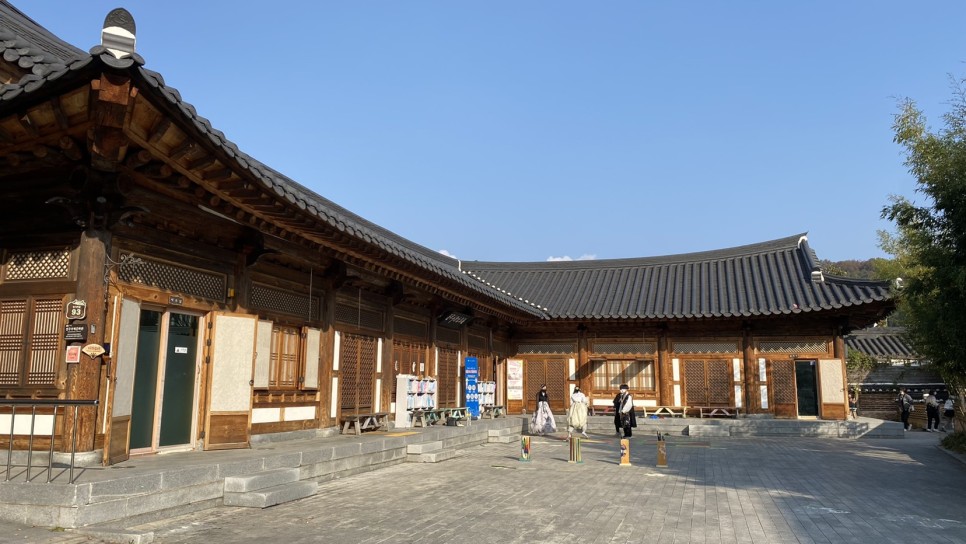
Jeonju Fan Culture Center celebrates the historical value and the mastery of the traditional Korean fans, one of the specialties of Jeonju.
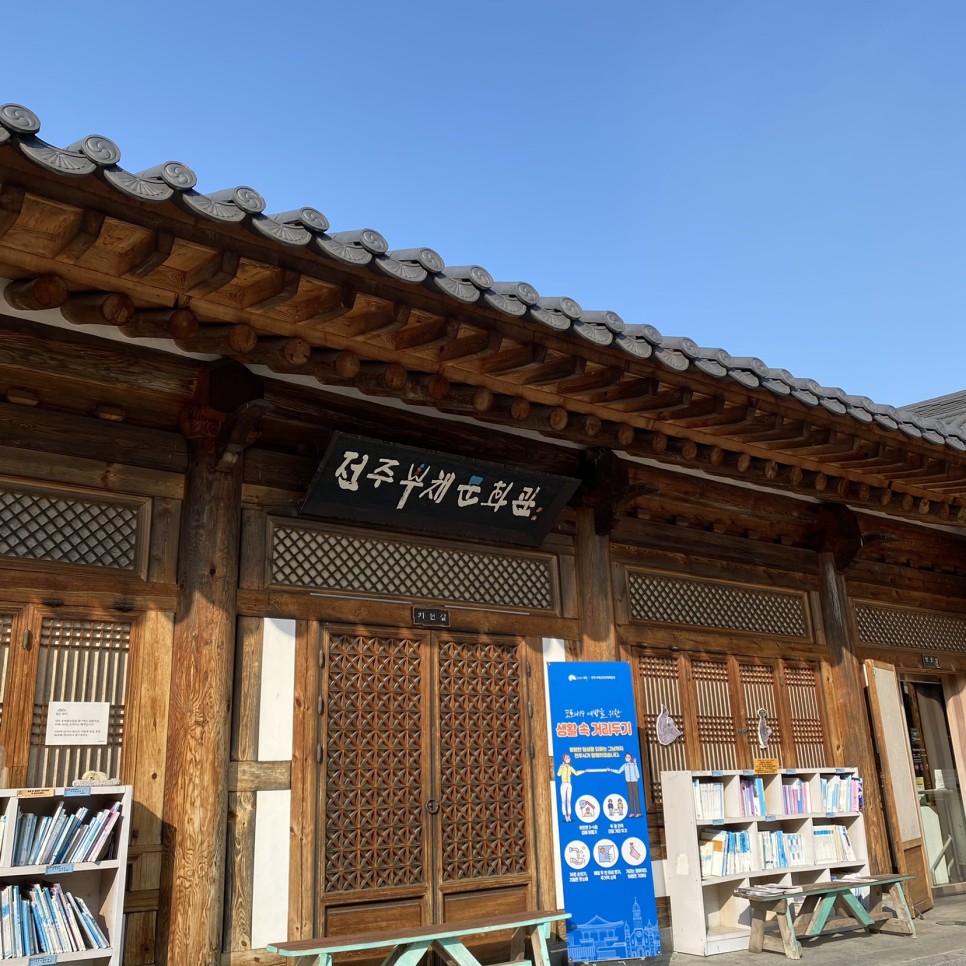
Jeonju Fan Culture Center is also free entry. The venue is open from 10:00 to 19:00, and closed on Mondays.
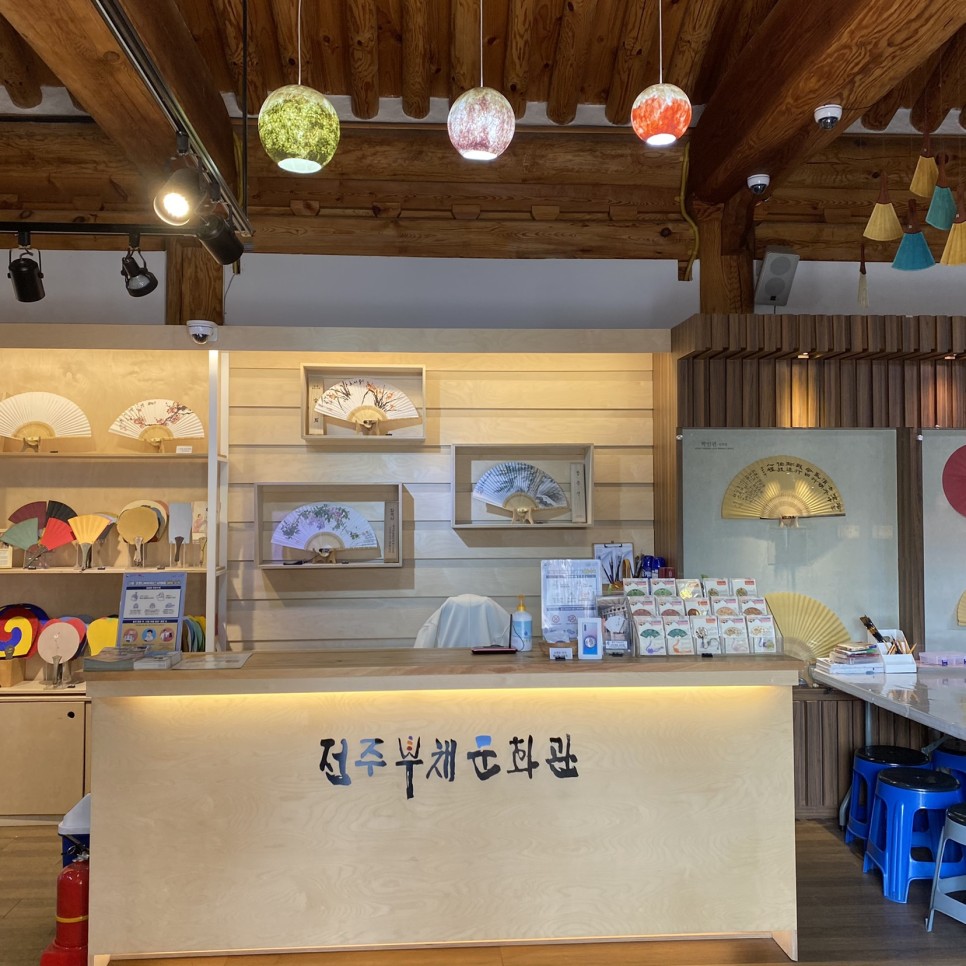
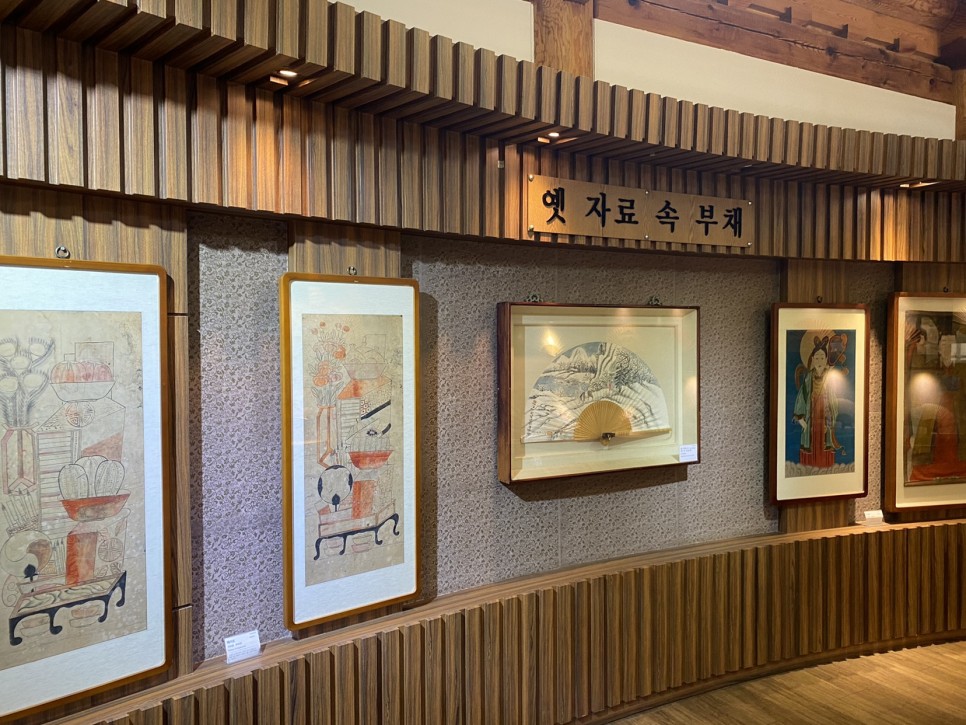
Why was Jeonju famous for the fan production? Jeonju has quality bamboos and produced the famous Jeonju hanji paper. Also, the city has many good artisans. In fact, Jeonju is home to more fan artisans than anywhere in Korea.
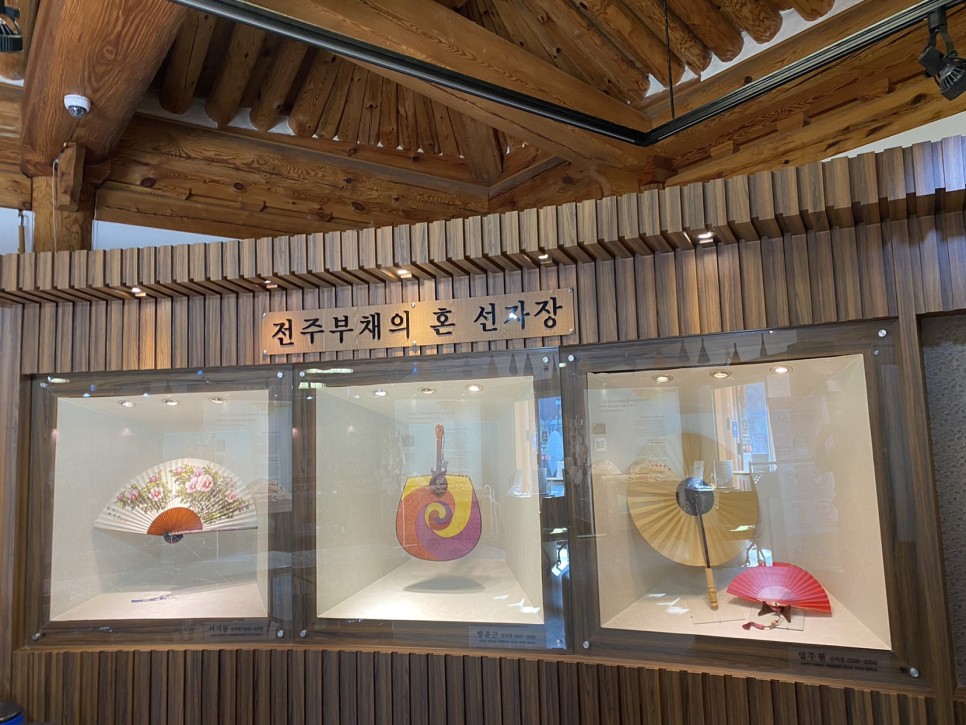
The historical record of the fan production in Jeonju dates back to the beginning of the Koryo Dynasty (918 AD). More than a thousand years ago, Jeonju already had a burgeoning fan industry, producing quality fans for everyone, from the royals to the commoners.
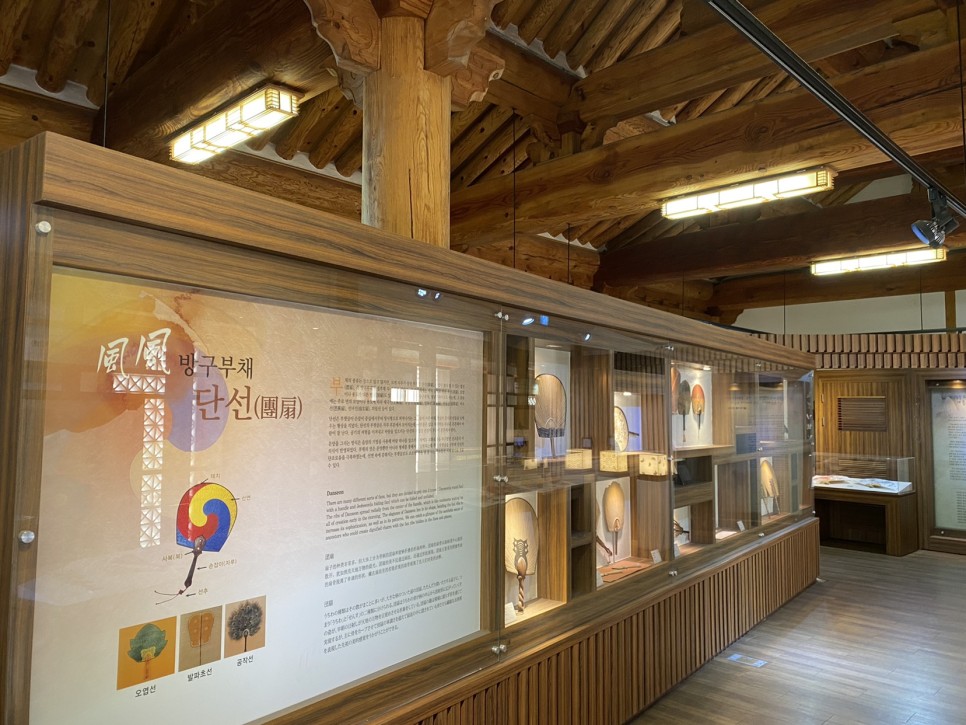
The permanent exhibition displays the fans and the related artefacts from both inside and outside Korea.
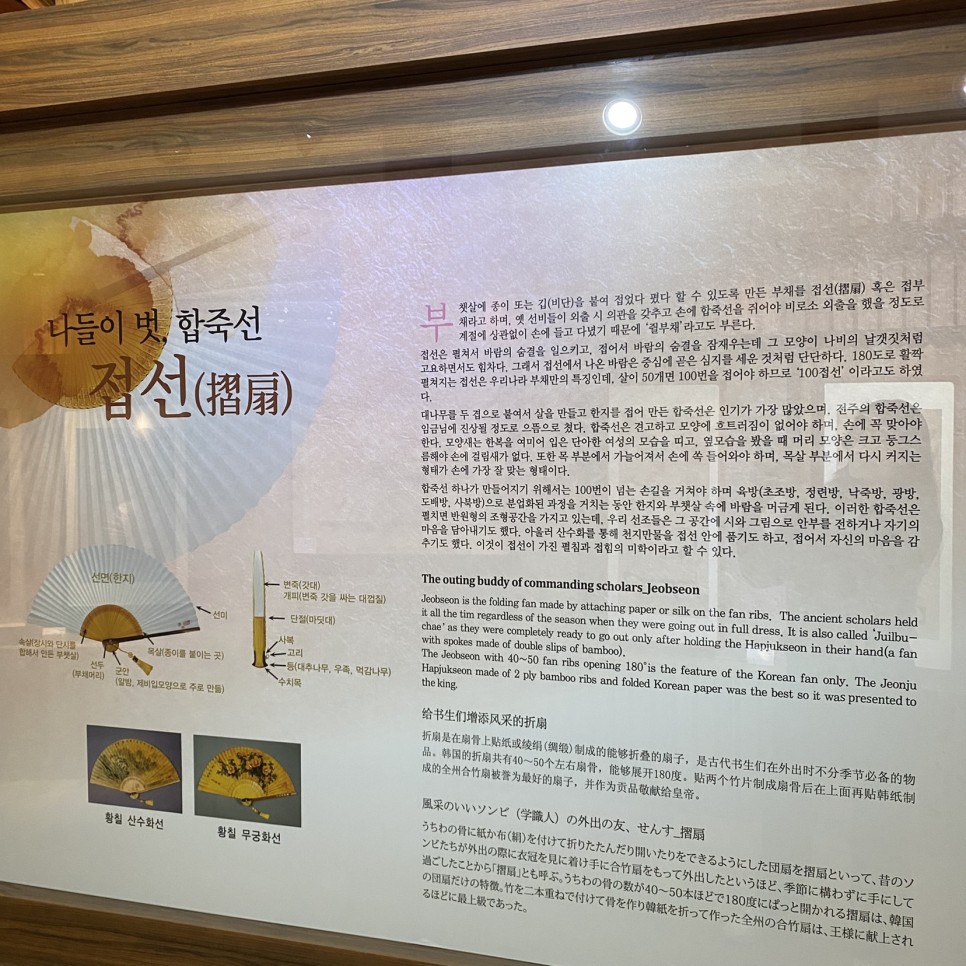
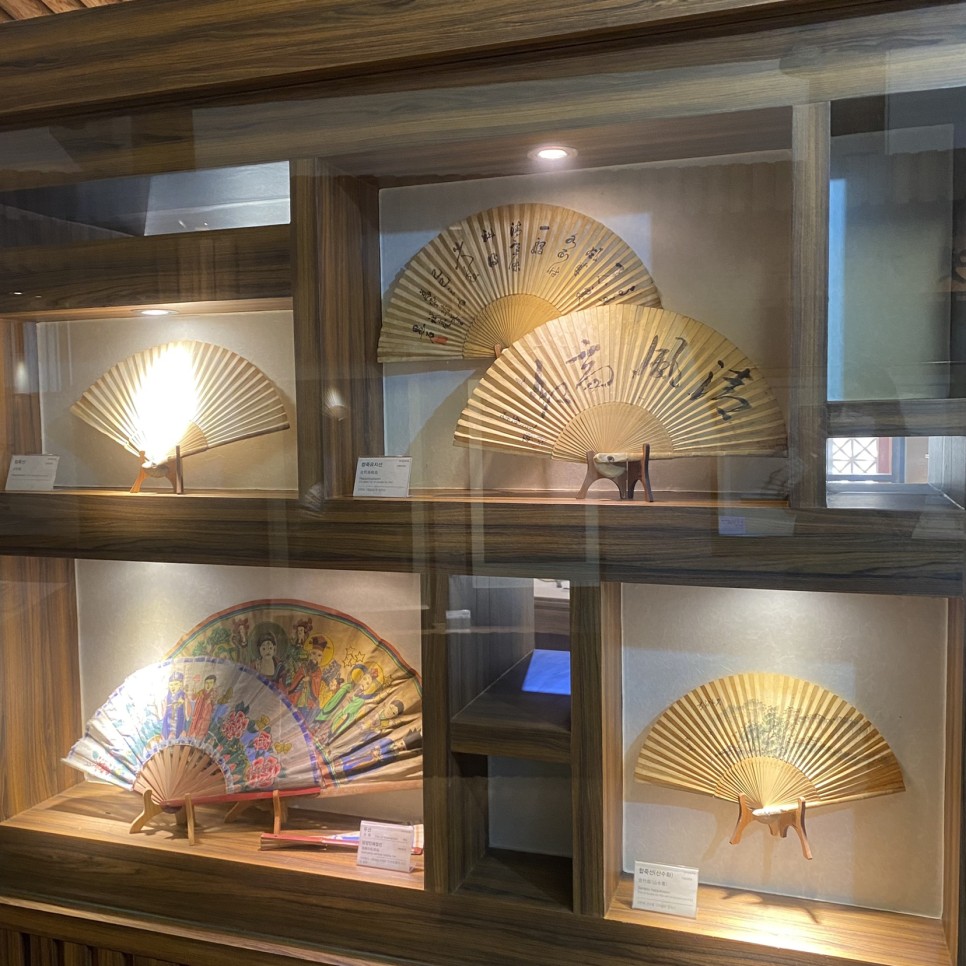
Also on display were the artistic fans by the famous local fan artisans.
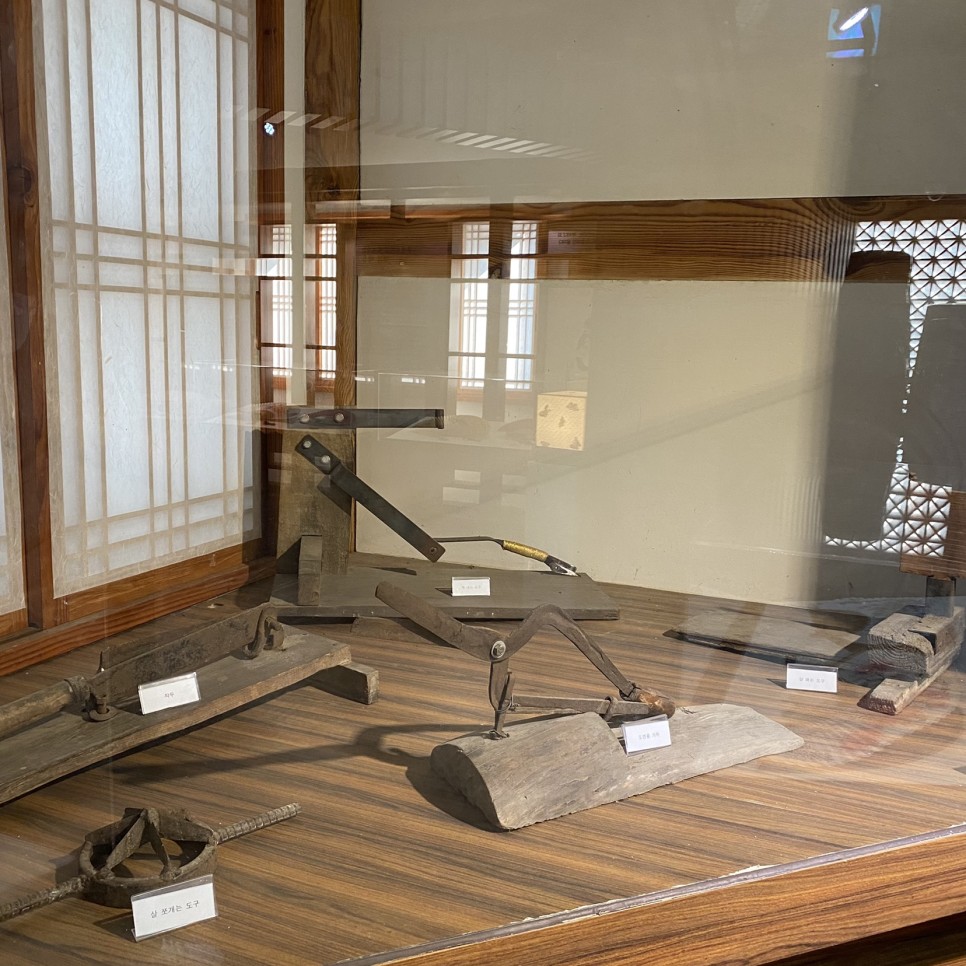
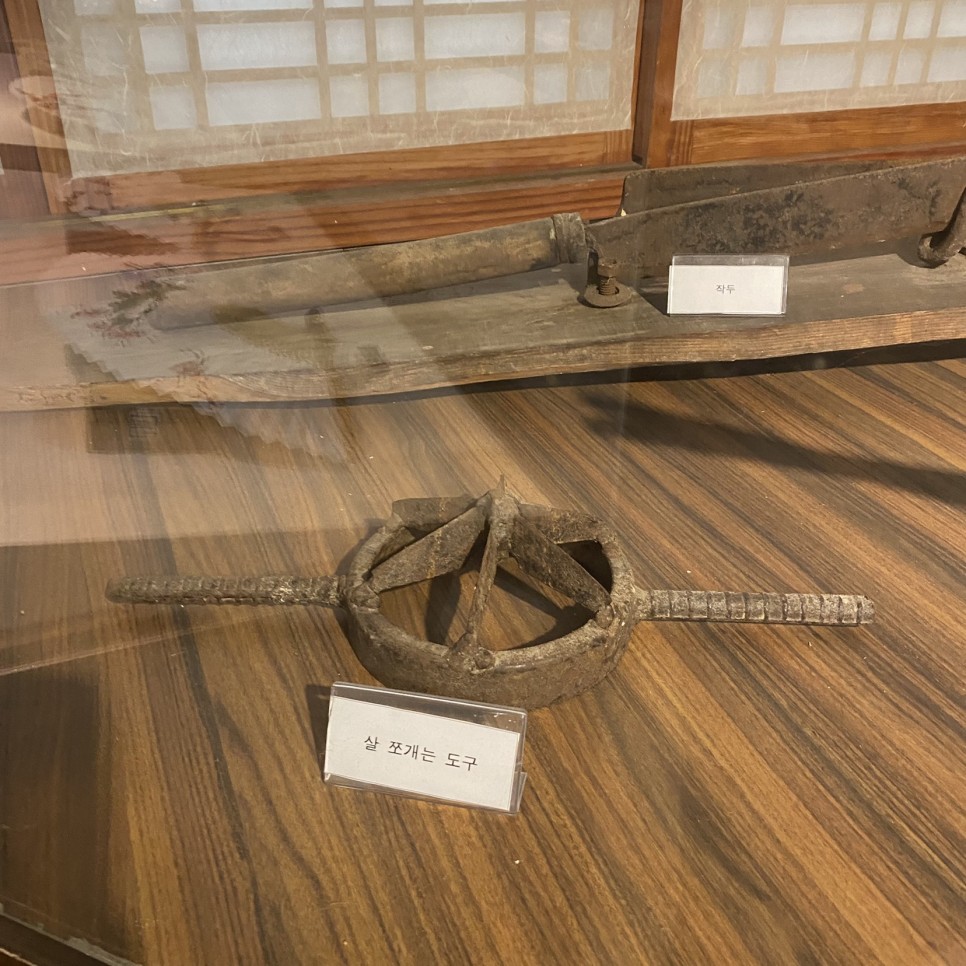
These are rarely seen: the tools to make fans.
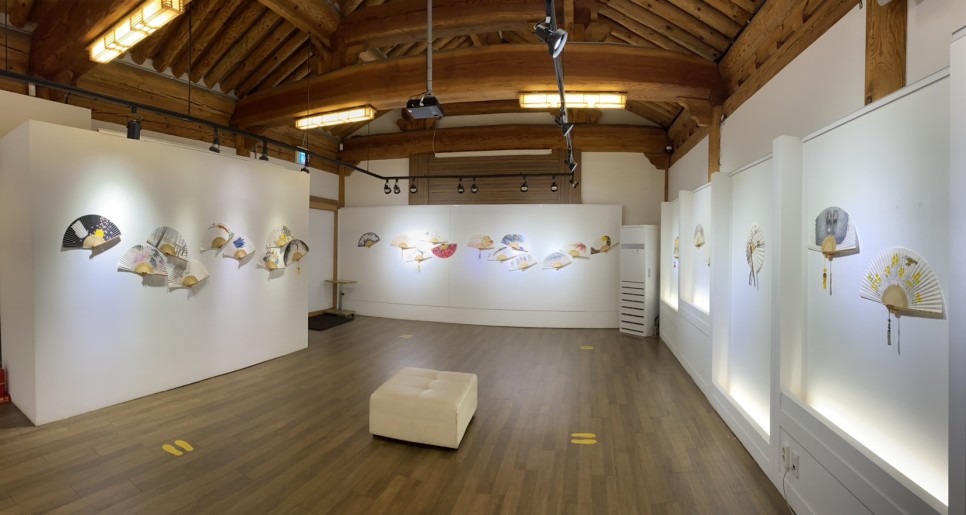
Jeonju Fan Culture hosts creative exhibitions that combine fans and calligraphy, traditional painting, or modern arts.
Jeonju Fan Culture Center
Address: Gyeonggijeongil 93, Wansangu, Jeonju
Contact: 063-231-1774
Opening hours: 10:00~18:00, closed on Mondays
Blog: https://blog.naver.com/jeonjufan
Jeonju Daesaseupcheong
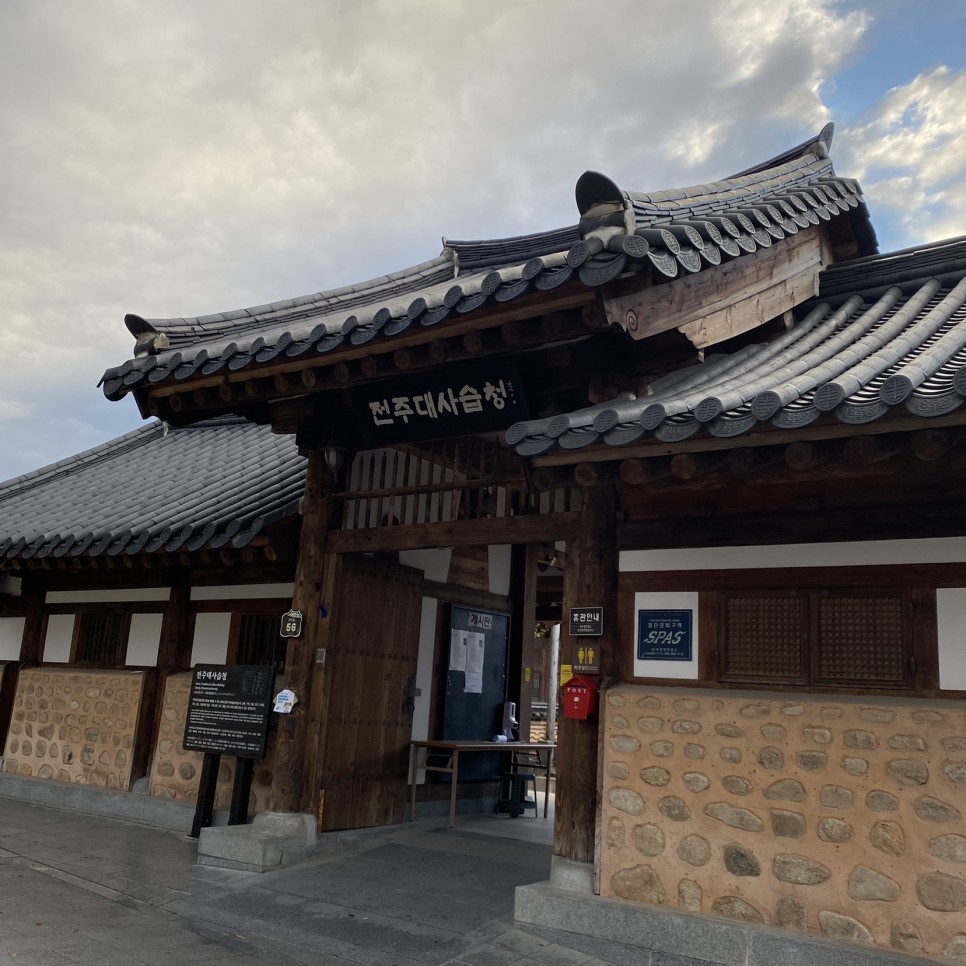
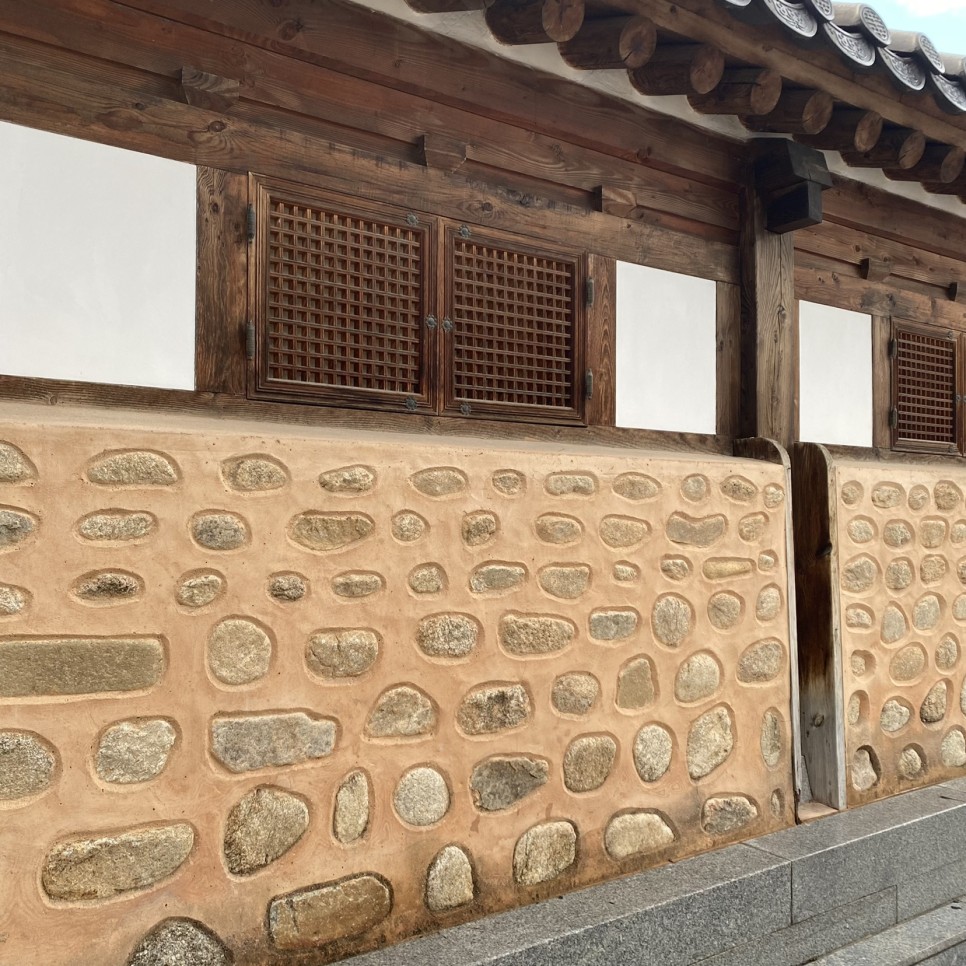
Jeonju Daesaseupcheong is a hanok building with a stage open towards a wide courtyard. This venue was formerly known as ‘Jeonju Sori Culture Center’.
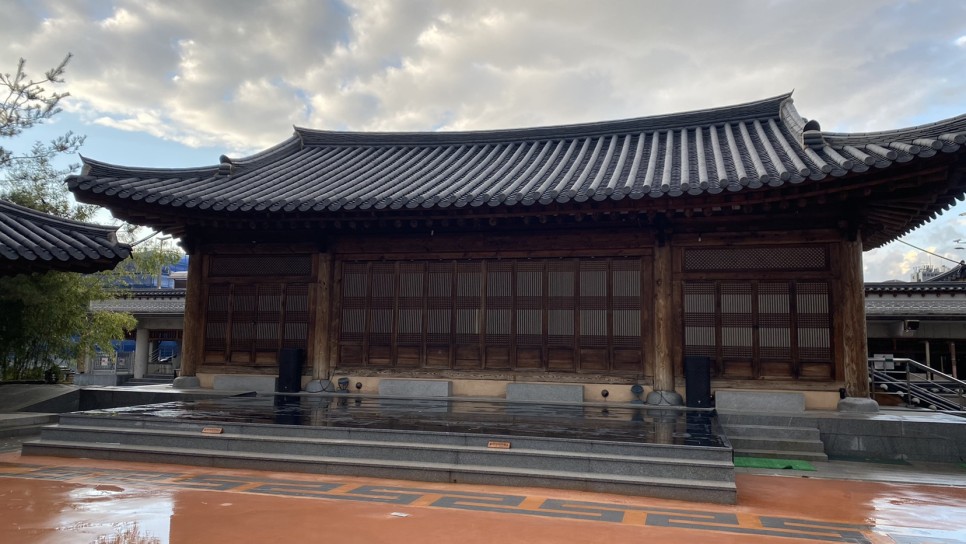
Jeonju Daesaseupcheong is closed on Mondays and free entry. The venue holds performances, experiences, and exhibitions related to traditional musical performances (mostly pansori: long musical storytelling performed by a vocalist and a drummer).

It’s been said that the pansori masters of the past took off shoes and practiced until grasses started to grow through their shoes. Their song is the product of such pain, time, and endurance.
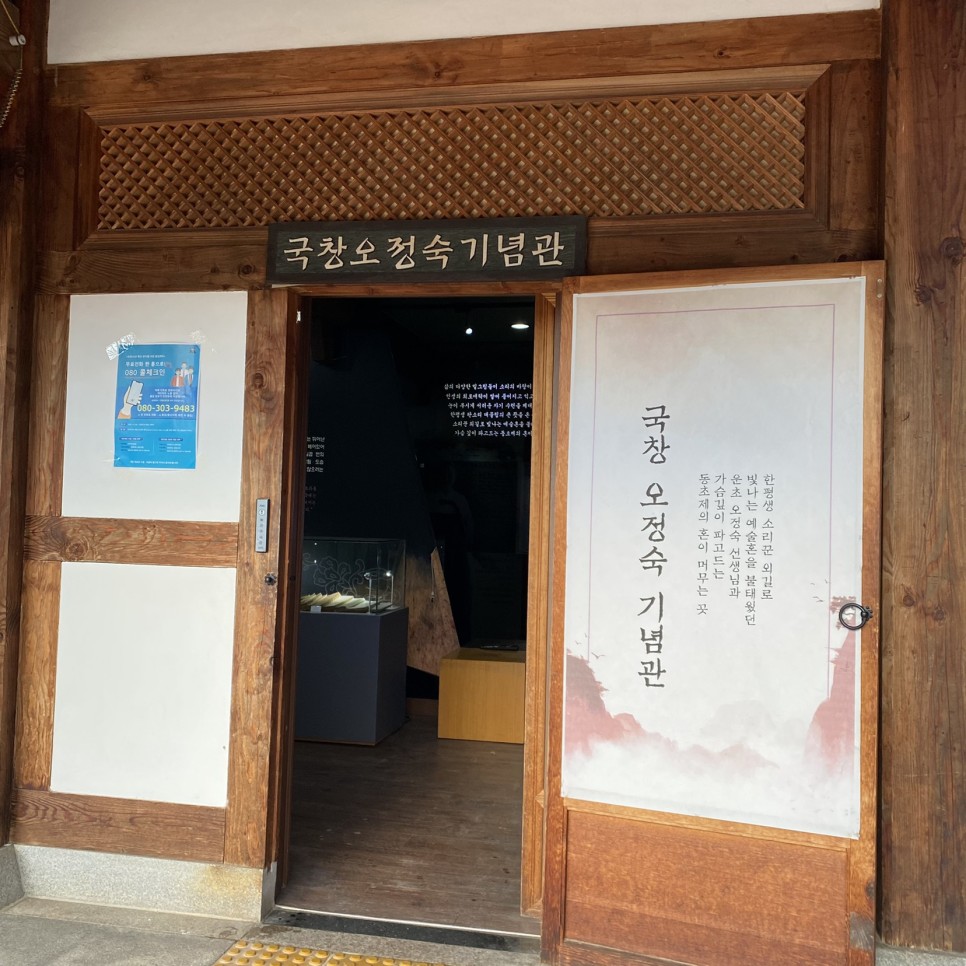
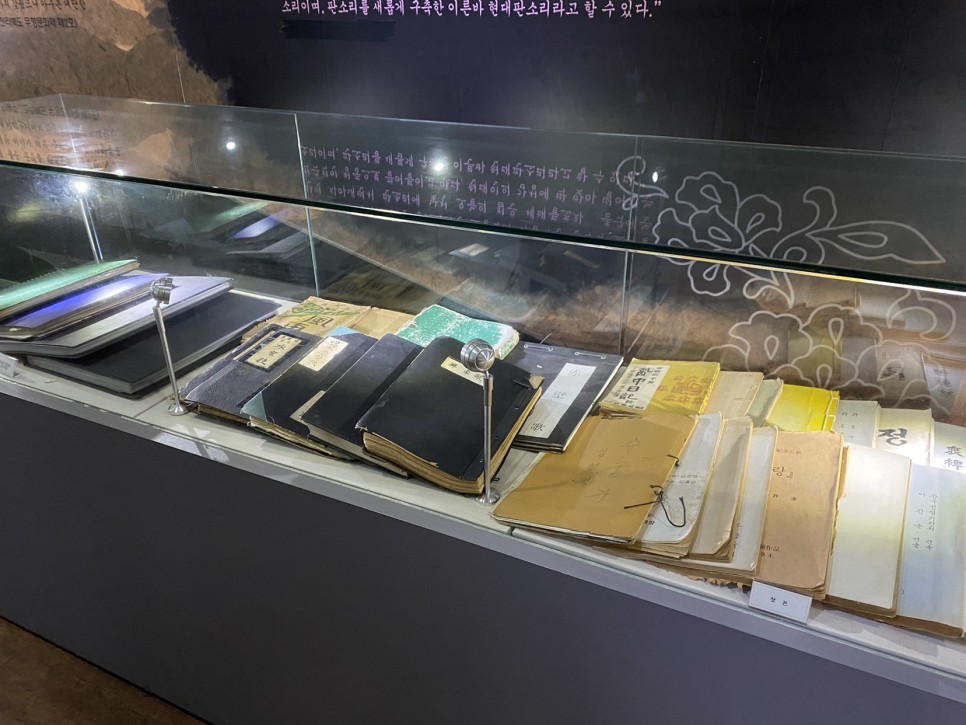
Jeonju Daesaseupcheong is home to the memorial of a pansori master Oh Jeong-sook. The memorial displays her relics such as fans and hanbok (Korean traditional costume) and the artefacts related to pansori.
Jeonju Daesaseupcheong
Address: Hanjigil 56, Wansangu, Jeonju
Contact: 063-288-0771
Homepage: http://jjdssch.or.kr/default/00/01.php
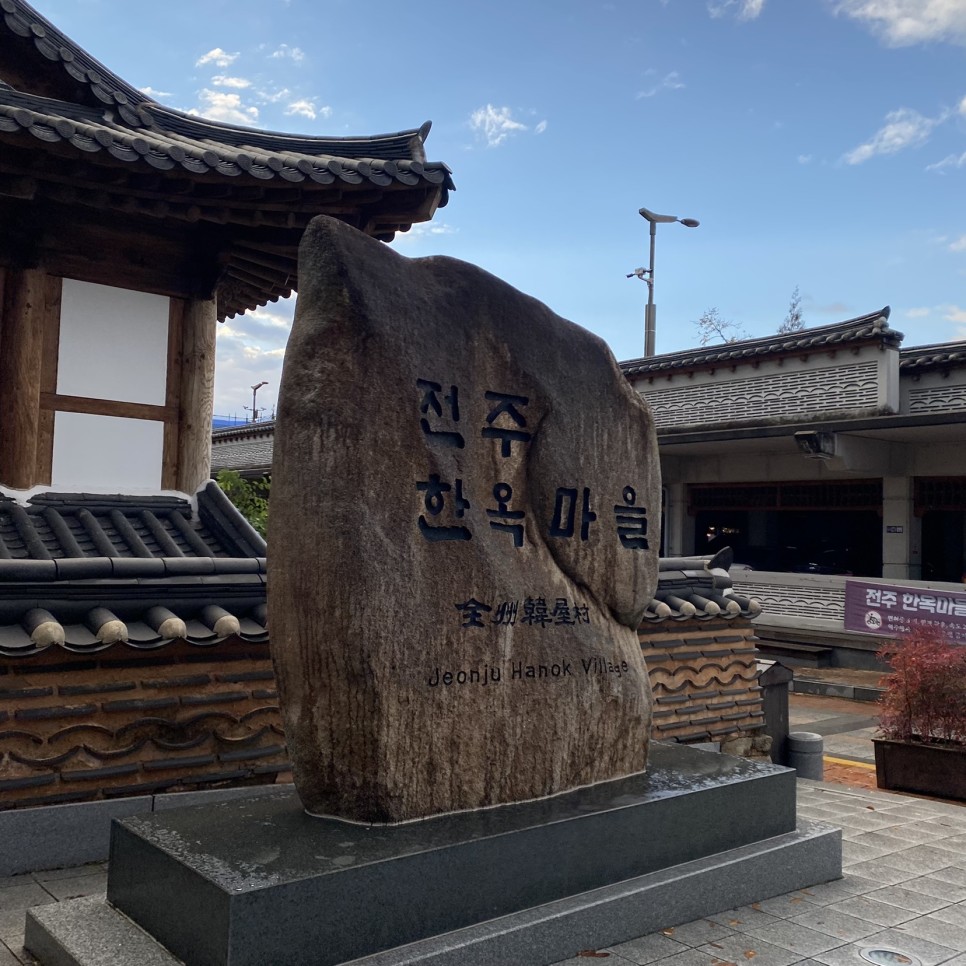
It’s fascinating that these culture centers are free entry. If you’re visiting Jeonju Hanok Village, don’t miss the experience programs offered in these centers.


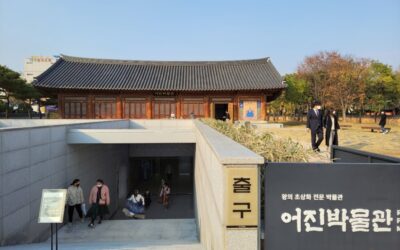
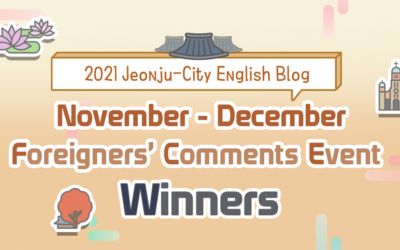
4 Comments